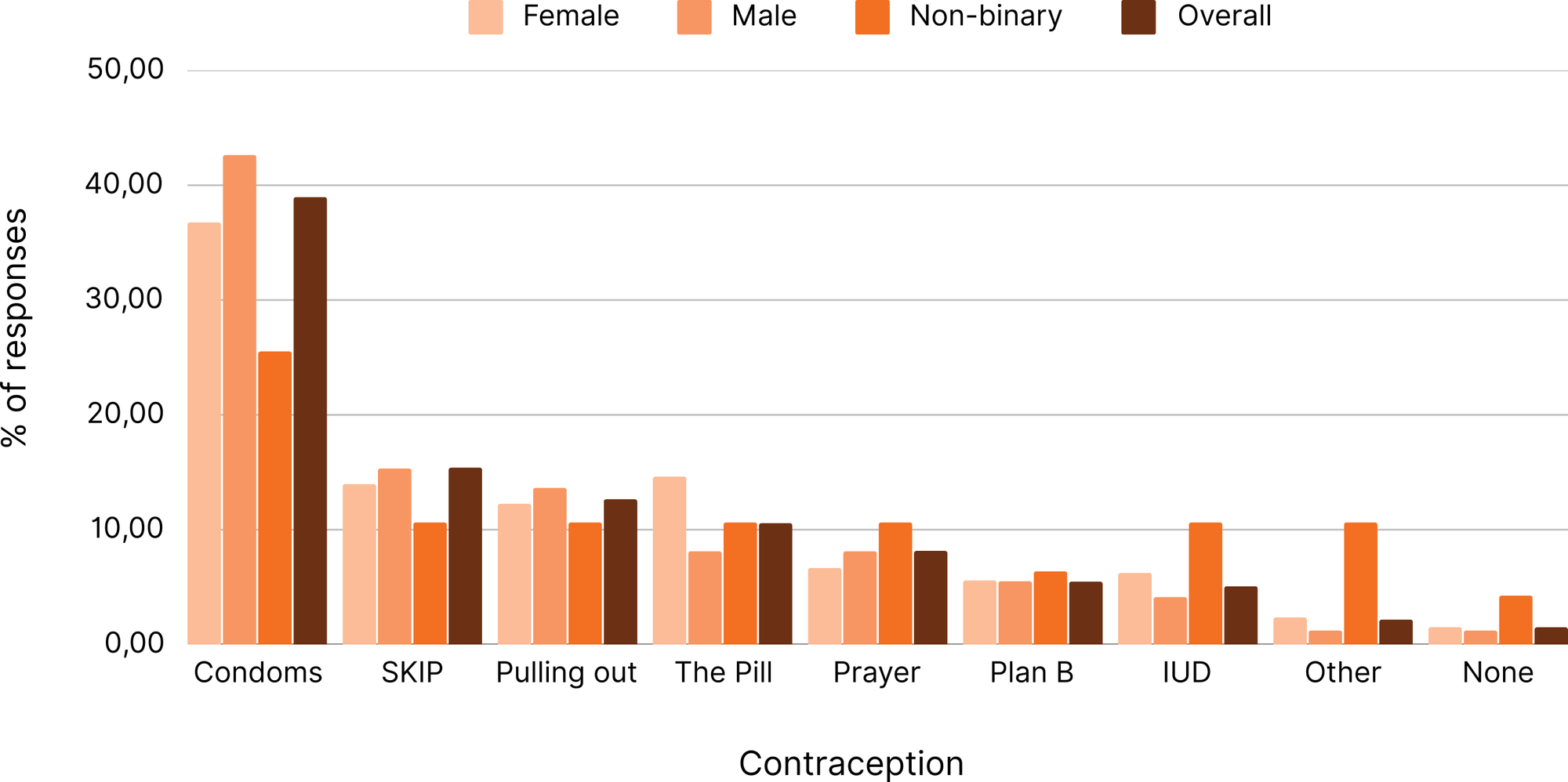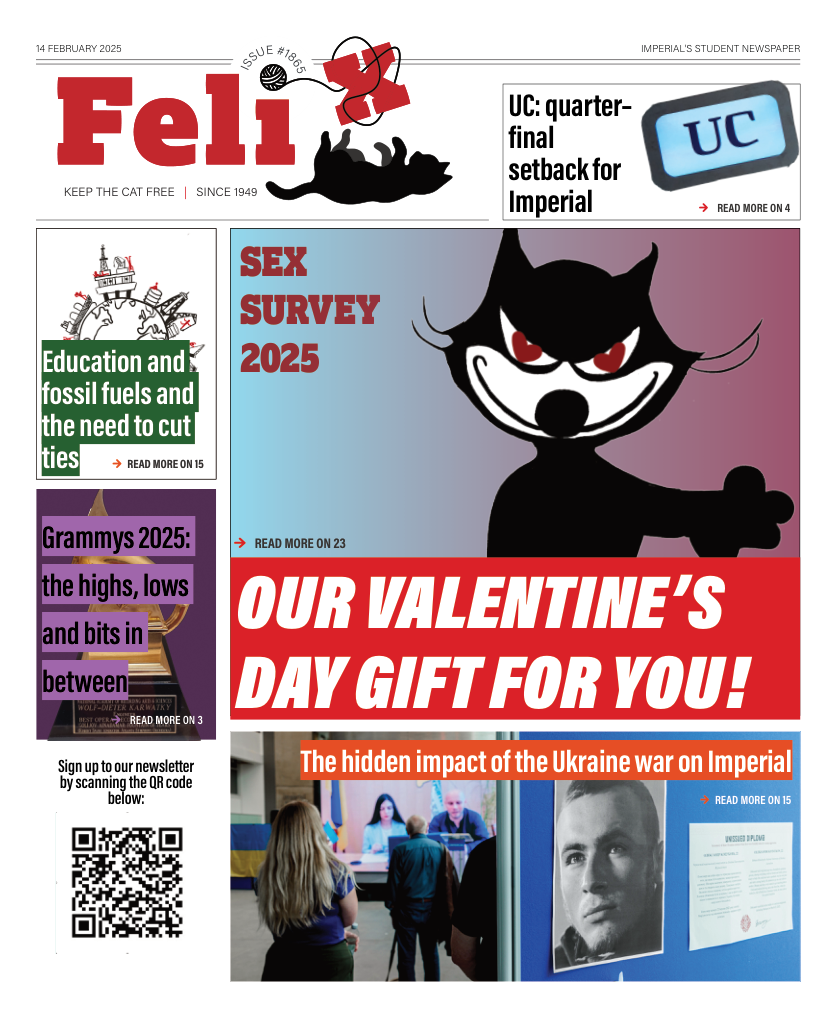Sex education: what Imperial students get wrong
Despite being sexually active, many students avoid sexual health screenings
Condoms are 98% effective in preventing pregnancy and the only contraceptives listed to protect from sexually transmitted infections (STIs) if used correctly. This means the condom was put on before penetrative intercourse and it does not split nor finds itself slipped off from the start to the end of its use.
42% of non-virgins have never tested for an STI
Pulling out on the other hand is NOT in any way protective from pregnancy and even less protective from STIs, hence the fact that roughly 13% of respondents rely on pulling out and 8% on prayer, is only shocking.
Plan B is a morning after pill taken to prevent pregnancy, similar to the daily pill, should be taken as soon as possible after sex and can be found in most pharmacies and GPs.
What type of contraception do you use?
13% of students try to prevent pregnancy by “pulling out”

How often do you test for STIs?
Only 15% of non-virgins test for STIs between partners

Society and sex







